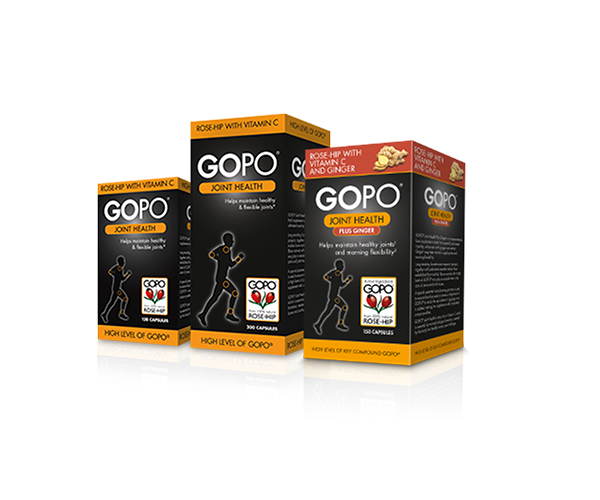Sponsored –
According to the healthcare regulatory body, The National Institute for Health and Care Excellence (NICE), commonly used painkillers such as paracetamol and ibuprofen offer little to no evidence that they provide relief from chronic pain and should not be prescribed, as announced in a new report that is set to shake up pain treatment for the nation1.
It has been estimated that chronic pain may affect up to half of the population2. A large proportion of these relate to joint health conditions, with back pain alone accounting for the single largest cause of disability in the UK3, and one third of the population aged over 45 seeking treatment for osteoarthritis4.
In fact, 17 million adults in the UK are affected by a joint or musculoskeletal condition, with nearly half of those dependent on paracetamol for the management of debilitating symptoms5.
Due to the increasing demands of an aging population, this figure is set to rise, with experts predicting that 7 million more people in the UK will suffer from arthritis by 20306.
Consultant Rheumatologist Dr Rod Hughes comments;
“As a nation we tend to ignore our joints until they cause us problems, resulting in an increasing number of people taking long-term analgesics to control the pain or needing surgery to repair knees and hips. Pharmacists can play a pivotal role in steering people with joint pain towards a prevention programme, promoting lifestyle and diet changes, including recommendation of clinically proven joint specific supplements.
To reduce the burden of joint health conditions, and improve quality of life for sufferers, a recent Joint Health of the Nation7 report calls for the following ‘FIVE STEPS’ to be implemented:
- Self-management
- Tailored prevention programmes
- Earlier intervention
- Psychological support
- Speed up referrals and access to treatment
Self-management and tailored prevention programmes can play a key role in the early intervention of joint health conditions, helping to reduce the burden on sufferers and society. Simple lifestyle changes, such as diet and exercise, can have a key impact on the long-term health of joints.
Following mounting evidence into the negative side-effects of pain killers2, and the recent NICE draft guidance which condemn the long-term use of analgesics1, the role of pharmacists has never been more important in steering patients towards safe and effective long-term self-management solutions.
Dr Rod Hughes adds,
“Now the side effects of paracetamol are well documented it is imperative that we look at safer, long term alternatives for those living with joint pain. One such option could be the galactolipid GOPO®, which has been shown in randomized, placebo controlled clinical trials to significantly reduce arthritis joint pain8-11 and reduce consumption of paracetamol by 40%8. GOPO® has been shown to help protect and repair joints and should certainly be considered for patients at the early onset of even mild joint pain.”
Extensive scientific studies involving over 400 patients with chronic pain conditions, such as osteoarthritis, have shown that GOPO® – the active compound isolated from the rose-hip Rosa Canina – produces significant and consistent pain relief and improved joint function. In one study, 8 out of 10 patients reported a significant reduction in pain after just 3 weeks of GOPO®8.
GOPO® Joint Health
High levels of the galactolipid GOPO® are found only in GOPO® Joint Health. GOPO® has been evaluated in numerous rigorously-conducted, placebo-controlled, clinical trials involving hundreds of patients with difficult-to-treat chronic joint conditions, including osteoarthritis and rheumatoid arthritis8-11. Efficacy results have been consistently positive and evidence supporting the benefits of GOPO® has been presented around the world at numerous clinical meetings and many studies have been published in peer-reviewed journals.
HOW THE GALACTOLIPID, GOPO®, WORKS
Laboratory studies into GOPO® have demonstrated that it can switch off certain genes responsible for producing proteins and enzymes that have been implicated in inflammatory joint destruction and switch on genes that help to produce collagen and cartilage11, which are essential components of a healthy joint. This suggests that when taken long term, the galactolipid GOPO® may protect cartilage cells and help to rebuild joint tissues11.
GOPO® Joint Health is also rich in vitamin C which is essential for normal collagen formation, needed by the body for healthy bones and cartilage.
GOPO® Joint Health is available from Boots, Amazon, supermarkets and independent chemists nationwide and is priced at £19.52 for 120 capsules and £29.60 for 200 capsules.
Visit www.gopo.co.uk for further information.
References:
- https://www.nice.org.uk/guidance/GID-NG10069/documents/draft-guideline
- de Vries F,SetakisE, van Staa TP. Concomitant use of ibuprofen and paracetamol and the risk of major clinical safety outcomes. Br J Clin Pharmacol 2010;70(3):429–38
- Hoy D, March L, Brooks P, et al.The global burden of low back pain: estimates from the Global Burden of Disease 2010 study,Annals of the Rheumatic Diseases 2014;73:968-974.
- Arthritis Research UKhttp://www.arthritisresearchuk.org/arthritis-information/data-and-statistics/data-by-condition/osteoarthritis.aspx
- Arthritis and Joint Pain Survey,Censuswide, 2017
- Kings Fund- https://www.kingsfund.org.uk/projects/time-think…/trends-disease-and-disability
- Joint Health of the Nation Report, 2019
- Winther, K et al. “A powder made from seeds and shells of a rose-hip subspecies (Rosa canina) reduces symptoms of knee and hip osteoarthritis: a randomized, double-blind, placebo-controlled clinical trial.” Scandinavian journal of rheumatology vol. 34,4 (2005):
- Willich SN, Rossnagel K, Roll S, et al. Rose hip herbal remedy in patients with rheumatoid arthritis – a randomised controlled trial. Phytomedicine. 2010;17(2):87-93. doi:10.1016/j.phymed.2009.09.003
- Christensen R et al. Does the hip powder of Rose canina (rose-hip) reduce pain in osteoarthritis patients? – a meta-analysis of randomised controlled trials, Osteoarthritis Cartilage (2008)
- Scaife R. The effect of GOPO supplementation on passive joint forces and subjective assessment of pain in a non-arthritic population. Poster presentation at the International Sports Science and Sports Medicine Conference 2013, Newcastle, August 21-23












Read our latest issue
Latest News
Pharmacy bodies launch community pharmacy manifesto
Study reveals ‘human cost’ of ‘relentless’ pharmacy workplace pressures
incognito named one of the most ethical businesses in the world
Ben & Anna launch world-first poly potato packaging
Latest Tweets